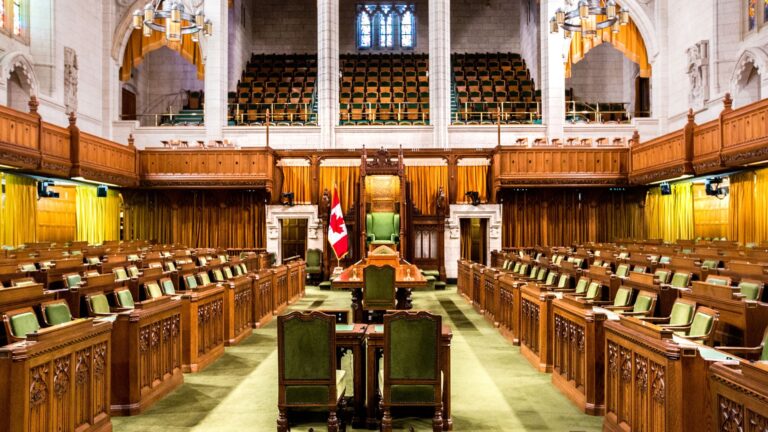How do I sponsor a family member in Canada?

Canada, renowned for its commitment to multiculturalism and diversity, offers a variety of immigration channels for those seeking to settle in this vast country, whether for economic, humanitarian or family reasons. Among these, family sponsorship stands out as a valuable option, enabling permanent residents and Canadian citizens to reunite their loved ones. This opportunity to sponsor a family member underlines the importance Canada places on family reunification, recognizing the family as the central nucleus of individual support and well-being.
The family sponsorship process is designed to be inclusive, allowing sponsorship not only of spouses, common-law partners and dependent children, but also, under certain conditions, of other family members such as parents and grandparents. This path to Canadian permanent residency is essential to maintain family unity and to offer families the chance to build a life together in Canada, in a context of mutual support and successful integration.
However, sponsoring a family member in Canada is not without its complexities. It involves a series of rigorous steps, precise eligibility criteria for both sponsor and sponsored person, and significant financial and legal obligations. From preparing the application to welcoming the family member, the process requires careful planning, a thorough understanding of regulatory requirements, and considerable patience given the variable processing times.
Through this article, we aim to provide a comprehensive and detailed overview of the family sponsorship process in Canada, focusing on sponsorship requirements, process steps, financial obligations, and more. Our aim is to provide a clear and practical guide for those wishing to embark on this valuable but often complex path to family reunification in Canada.
Sponsorship conditions
To ensure the integrity and effectiveness of the family sponsorship process, Immigration, Refugees and Citizenship Canada (IRCC) has established specific conditions for both the sponsor and the family member wishing to be sponsored. These conditions are designed to ensure that the commitments made by the sponsor are honored, and that the sponsored family member can integrate harmoniously into Canadian society.
For the Sponsor
Eligibility criteria for sponsors are designed to ensure that they are able to provide adequate support to their family once in Canada. The sponsor must :
- Be at least 18 years old.
- Be a Canadian citizen, a person registered in Canada as an Indian under the Indian Act, or a permanent resident of Canada.
- Residing in Canada. Canadian citizens living abroad must prove their intention to return to Canada when the family member immigrates..
- Commit to financially support the sponsored family member, if necessary, for a specified period. This period varies according to the relationship with the sponsored family member..
Certain conditions may disqualify a person from becoming a sponsor, such as having previously defaulted on a sponsorship undertaking, being on social assistance for a reason other than disability, or having been convicted of certain criminal offences..
For the Sponsored Family Member
The family member wishing to be sponsored must also meet certain eligibility criteria. These criteria vary according to the type of relationship with the sponsor (spouse, common-law partner, dependent child, parent, grandparent, etc.) but generally include :
- The need to pass a medical and safety examination.
- Not be inadmissible to Canada for reasons of safety, health or criminality.
- Have a genuine relationship with the sponsor and have not entered into the relationship primarily for the purpose of immigrating to Canada.
Restrictions and Ineligibility
Certain special cases may complicate or prevent sponsorship. For example, if the sponsor has already sponsored a spouse or conjugal partner and less than five years have passed since that person became a permanent resident, the sponsor cannot sponsor a new spouse or conjugal partner..
Meeting these conditions is crucial to the success of a sponsorship application. Potential sponsors should carefully assess their ability to meet these requirements before committing to the sponsorship process. As for family members wishing to be sponsored, it is important to understand the eligibility criteria and ensure that they can be met to facilitate their integration into Canada.
Sponsorship process
The process of sponsoring a family member to Canada is structured and requires careful attention at every stage to ensure a complete and compliant application. From the initial preparation of the application to the final submission, each phase is crucial to the success of the sponsorship.
Preparing your application
The first step in the family sponsorship process is to determine your eligibility as a sponsor and gather all the necessary documents for you and your family member's application. This includes:
- Application forms for the sponsor and the sponsored party.
- Proof of sponsor's status in Canada (citizenship, permanent residence).
- Documents proving family relationship (marriage certificates, birth certificates).
- Financial assessments to demonstrate the sponsor's ability to support the sponsored child.
It is imperative that you carefully follow the instructions provided by IRCC to correctly complete these forms and provide all required supporting documents.
Submitting a request
Once all the documents are ready and the forms properly completed, the complete file must be submitted to IRCC. How the application is submitted may vary depending on the type of sponsorship (online or by mail), and processing fees may apply. The sponsor must also prove that he/she can meet the financial needs of the sponsored person for a specified period after his/her arrival in Canada..
After Submission
Once the application has been submitted, several steps follow:
- Acknowledgement of receiptIRCC sends an acknowledgement that the request has been received and is being processed.
- EvaluationThe application is assessed by an immigration officer. This may include interviews with the sponsor and/or sponsored person.
- DecisionA decision is made on the application. If approved, the sponsored family member will receive instructions to undergo a medical examination and provide biometric data, if not already done.
- Arrival preparationOnce the application has been approved, steps are taken to prepare for the family member's arrival, including obtaining a permanent resident visa.
Follow-up and Updates
The Sponsor and Sponsored can check the status of their application online using the file number provided by IRCC. It is important to keep all information up to date and to respond promptly to any additional requests for information or documents from IRCC..
The sponsorship process is a detailed journey that requires careful preparation, complete submission and attentive follow-up. By scrupulously respecting each step and providing all required information and documents, sponsors can increase their chances of success in the process of bringing their family to Canada. Patience and attention to detail are essential throughout this process.
Financial Obligations of the Sponsor
A crucial element of the family sponsorship process in Canada is the sponsor's financial responsibility to the sponsored family member. These obligations are put in place to ensure that newcomers do not become a burden on the Canadian social welfare system, and that they have the resources they need to settle and integrate successfully.
Bond duration
The duration of the financial commitment varies according to the type of family member being sponsored. For a spouse, common-law or conjugal partner, the commitment generally lasts three years from the day the family member becomes a permanent resident. For dependent children (biological or adopted) or children to be adopted in Canada who are under 22 years of age, the undertaking lasts 10 years or until the 25th birthday, whichever comes first (3 years for dependent children aged 22 or over). For parents and grandparents, this period is extended to 20 years.. During this period, the sponsor must provide sufficient financial support to cover basic needs such as food, housing and clothing.
Financial responsibilities
Financial responsibilities include, but are not limited to, ensuring that the sponsored family member does not apply to the government for social assistance. If the sponsored family member receives social assistance during the commitment period, the sponsor may be required to repay these amounts to the government.. This requirement underlines the importance of the sponsor having sufficient financial stability before embarking on the sponsorship process.
Important Considerations
Before committing to the sponsorship process, it is crucial for the sponsor to carefully assess his or her financial situation. This includes taking into account current income, available savings, and the ability to bear additional costs that may arise during the commitment period. It is also important to note that certain personal situations, such as receiving social assistance (with the exception of disability), may make a person ineligible to become a sponsor..
In short, the sponsor's financial obligations play a fundamental role in the family sponsorship process, ensuring that sponsored family members are well supported in their transition to life in Canada. Understanding and preparing for these obligations is essential to ensuring a successful and stress-free sponsorship experience for both sponsor and sponsored. Potential sponsors should therefore exercise due diligence and ensure that they are fully capable of fulfilling these commitments before proceeding with the sponsorship.
Special cases of sponsorship
In the context of family sponsorship, there are special situations that require special attention. These include the sponsorship of adopted children, parents and grandparents. Each of these situations has distinct rules, requirements and procedures that must be carefully followed to ensure a successful application.
Sponsorship of Adopted Children
The process of sponsoring an adopted child differs from that of other family members, mainly because of the legal and ethical considerations involved in international adoption. Sponsors must:
- Canadian citizens or permanent residents living in Canada.
- Must be at least 18 years old.
- Demonstrate that they will reside in Canada when the adopted child becomes a permanent resident.
It is crucial to ensure that the adoption respects the laws of the child's country of origin as well as Canadian law. Thorough checks are carried out to ensure the best interests of the child and to prevent any form of child trafficking.
Sponsorship of Parents and Grandparents
Sponsorship from parents and grandparents is in great demand, and is subject to annual quotas to limit the number of acceptances. Sponsors must:
- Meet more stringent financial requirements, given the extended duration of the financial support commitment (20 years).
- Demonstrate the ability to provide for the basic needs of the sponsored persons for the duration of the commitment.
IRCC also offers the Super Visa, an alternative to traditional sponsorship for parents and grandparents. This visa allows multiple entries into Canada for up to ten years, with each stay lasting up to two years.
Other considerations
- Quebec-specific requirementsQuebec residents wishing to sponsor family members must meet additional, separate requirements under the immigration agreements between Quebec and the federal government of Canada..
- Complex situationsCertain situations, such as sponsorship of a common-law spouse, where it may be necessary to prove cohabitation or the authenticity of the relationship, require additional documentation and proof.
Sponsoring family members in special cases can be complex and requires careful preparation. Each situation has its own challenges and requirements, and it's essential to familiarize yourself with the specific rules that apply. To succeed in these types of sponsorship, it is advisable to consult the official IRCC guides, and if necessary, seek the assistance of a qualified lawyer or immigration consultant. Ensuring that all criteria and requirements are meticulously respected can increase the chances of approval of the application and facilitate family unification in Canada.
Conclusion
Sponsoring a family member to immigrate to Canada is a noble undertaking that reflects a deep commitment to family values and family reunification. This process, though complex and sometimes lengthy, is a valuable way to strengthen family ties and build a life together in a new country.
Throughout this article, we've explored the various aspects of family sponsorship, from the requirements for sponsors and sponsored family members, through the detailed steps of the application process, to financial obligations and considerations for special sponsorship cases. Each section emphasizes the importance of preparation, documentation and strict adherence to the guidelines provided by Immigration, Refugees and Citizenship Canada (IRCC).
Family sponsorship in Canada is marked by a series of important responsibilities for the sponsor, including the commitment to financially support the sponsored family member and to ensure his or her successful integration. Special cases, such as the sponsorship of adopted children, parents and grandparents, add a further layer of complexity, but also reflect the flexibility of the Canadian immigration system to meet the varied needs of families.
It is crucial for those considering sponsorship to be thoroughly informed and prepared for all the requirements of the process. IRCC's official resources, as well as the assistance of immigration professionals when needed, are invaluable assets for successfully navigating this process.
Ultimately, family sponsorship in Canada is an expression of the country's commitment to diversity and family support. It represents a significant opportunity for many families to come together and thrive in a setting that values family unity, integration and community well-being. For those who undertake this journey, patience, diligence and a commitment to the process can open the door to new opportunities and a promising future in Canada.







